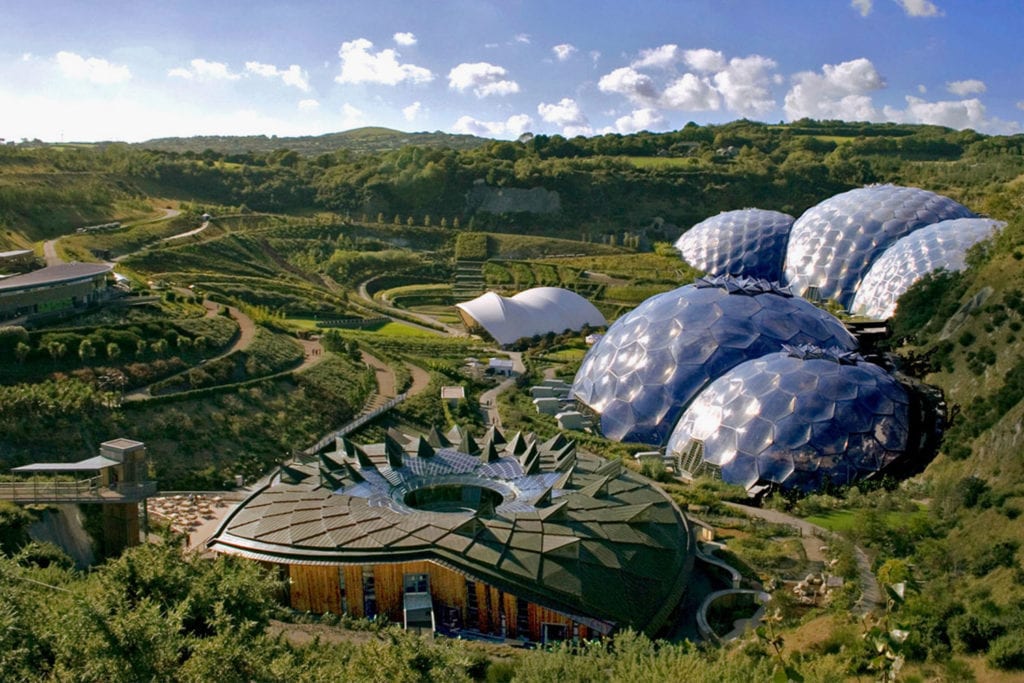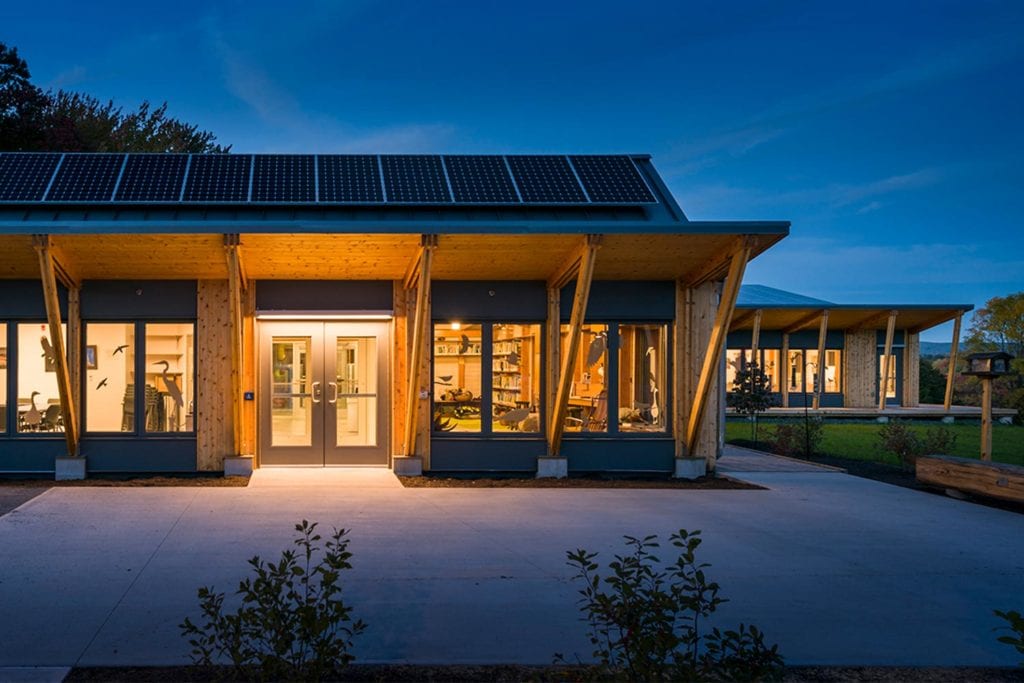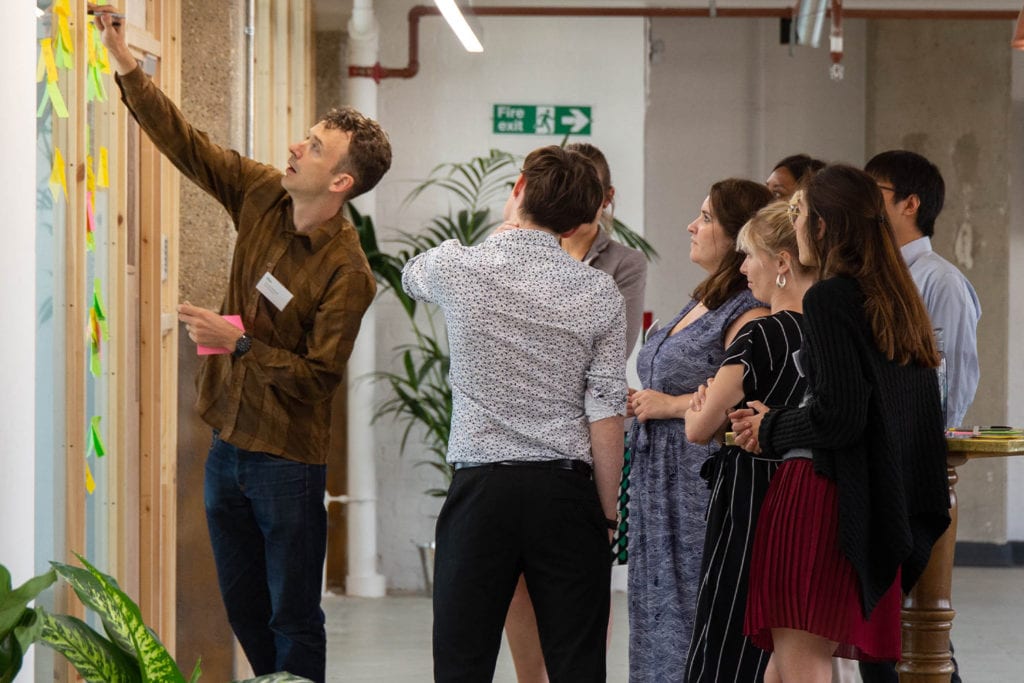Can regeneration be a catalyst for fair and inclusive climate action in Leeds?
By James Dickinson, Lara Balazs and Georgina Chamberlain
In October 2019, Buro Happold brought together a group of developers, policy-makers, academics and engineers. Our aim was to explore how we can secure the right kind of sustainable development to deliver the vision – for Leeds to be both net zero carbon and the best performing city in the UK by 2030.
For engineers and consultants in the built environment it is too easy to work and think only inside the red line boundary of a particular development. However, multiple transitions will need to happen concurrently to deliver against the UK’s bold climate commitments.
We wanted to explore how designers, developers and planners might capitalise on new development across the city and widen the good intentions beyond the planning boundary.
A range of speakers from across the sector joined the panel:
- Professor Andy Gouldson (Leeds University and Leeds Climate Commission) chairing the panel
- Sophia Cox (UK Green Building Council) discussing design for social value
- Lee Arnell (Executive Regeneration Manager, Strategic Growth: City Centre and Major Infrastructure, Leeds City Council) giving insight into the Leeds planning context
- Phil Dyke (Potential Energy on behalf of CEG) providing examples of implementing good practice into live projects.

Key insights from the panel
Leeds could become a carbon neutral city by 2050 – and potentially by 2030 (Professor Andy Gouldson)
Professor Andy Gouldson discussed key insights from the Leeds Carbon Roadmap (https://www.leedsclimate.org.uk/leeds-carbon-roadmap), recently published by the Leeds Climate Commission. Options include switching the gas network to de-carbonised hydrogen, deep retrofit of both domestic and non-domestic buildings, and accelerated rollout of district heating and electric vehicles.
Doing things with communities, not to them (Sophia Cox)
Sophia Cox brought ideas from the UKGBC’s Social Value programme, building on the Social Value in New Development guidance document (https://www.ukgbc.org/ukgbc-work/social-value/). Sophia provided insight about how existing mechanisms can be used to promote social value. She also highlighted opportunities that local authorities can take to hold all parties to account through procurement, land disposal and the planning process.
Regeneration manifests through physical change, but is about transformation in a broader sense (Lee Arnell)
Lee Arnell highlighted the role of local authorities in engaging with developers to deliver sustainable development, framing the planning process differently – with people at the centre.
For Leeds, the Inclusive Growth Strategy (http://www.leedsgrowthstrategy.co.uk) sits at the core of new policy. However, collaboration, not just regulation, will ultimately deliver the paradigm shift needed.
Flexibility is required to reward pioneering development (Phil Dyke)
Phil Dyke used the Kirkstall Forge project as an exemplar for delivering broad social benefits through development. The approach to energy strategy in this development has been to move away from a traditional compliance-based approach towards design for performance.
This development has also begun to tackle the skills gap in sustainable building that exists in Leeds. It is using its SIPs-construction prototype houses (https://www.kirkstallforge.com/news/pioneering-prototype-homes-to-be-delivered-at-kirsktall-forge/) to develop the next generation of construction workers.
Yorkshire knows all too well what an unjust energy transition looks like
Professor Andy Gouldson
The panel discussion that followed was wide-ranging, drawing on expertise from others present to explore how Leeds can demonstrate best practice in regulation, design and operation. Key themes were:
- Policy
Change can come from the bottom up, but delivering radical climate action locally requires innovative policy at a national level. - Design for performance
A move away from design for compliance is required to deliver high-quality buildings that actually perform as intended.. - Business models
Changing the model towards longer-term involvement means that social value issues come to the fore. - Embodied Carbon
Carbon associated with construction materials and products arises from activities within the city but occurs outside the city boundary. As such, it is often overlooked but is a significant portion of global carbon emissions. - Stakeholder consultation
Engaging stakeholders in policy and planning early on can ensure the needs of specific communities are met.
Leeds has all the ingredients it needs to deliver a just energy transition and become an exemplar carbon neutral city. We need a new normal.





